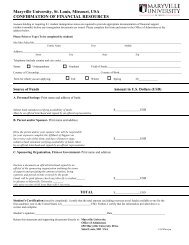The Tragedy of the Commons - The Garrett Hardin Society
The Tragedy of the Commons - The Garrett Hardin Society
The Tragedy of the Commons - The Garrett Hardin Society
You also want an ePaper? Increase the reach of your titles
YUMPU automatically turns print PDFs into web optimized ePapers that Google loves.
Fall 2001T HE S OCIAL C ONTRACTancient Chinese, but it may take tenthousand words to validate it. It isas tempting to ecologists as it is toreformers in general to try topersuade o<strong>the</strong>rs by way <strong>of</strong> <strong>the</strong>photographic shortcut. But <strong>the</strong>essence <strong>of</strong> an argument cannot bephotographed: It must be presentedrationally — in words.That morality is system-sensitiveescaped <strong>the</strong> attention <strong>of</strong> mostcodifiers <strong>of</strong> ethic s in <strong>the</strong> past.“Thou shalt not…” is <strong>the</strong> form <strong>of</strong>traditional ethical directives whichmake no allowance for particularcircumstances. <strong>The</strong> laws <strong>of</strong> oursociety follow <strong>the</strong> pattern <strong>of</strong> ancientethics, and <strong>the</strong>refore are poorlysuited to governing a complex,crowded, changeable world. Ourepicyclic solution is to augmentstatutory law with administrativelaw. Since it is practicallyimpossible to spell out all <strong>the</strong>conditions under which it is safe toburn trash in <strong>the</strong> back yard or to runan automobile without smog-control,by law we delegate <strong>the</strong> details tobureaus. <strong>The</strong> result is administrativelaw, which is rightly feared for anancient reason — Quis custodiesipsos custodes? — “Who shallwatch <strong>the</strong> watchers <strong>the</strong>mselves?”John Adams said that we musthave “a government <strong>of</strong> laws andnot men.” Bureau administrators,trying to evaluate <strong>the</strong> morality <strong>of</strong>acts in <strong>the</strong> total system, aresingularly liable to corruption,producing a government by men,not laws.Prohibition is easy to legislate(though not necessarily to enforce),but how do we legislatetemperance? Experience indicatesthat it can be accomplished bestthrough <strong>the</strong> mediation <strong>of</strong>administrative law. We limitpossibilities unnecessarily if wesuppose that <strong>the</strong> sentiment <strong>of</strong> Quiscustodiet denies us <strong>the</strong> use <strong>of</strong>administrative law. We shouldra<strong>the</strong>r retain <strong>the</strong> phrase as aperpetual reminder <strong>of</strong> fearfuldangers we cannot avoid. <strong>The</strong> greatchallenge facing us now is to invent<strong>the</strong> corrective feedbacks that areneeded to keep custodians honest.We must find ways to legitimate <strong>the</strong>needed authority <strong>of</strong> both <strong>the</strong>custodians and <strong>the</strong> correctivefeedbacks.Freedom to BreedIs Intolerable<strong>The</strong> tragedy <strong>of</strong> <strong>the</strong> commons isinvolved in population problems inano<strong>the</strong>r way. In a world governedsolely by <strong>the</strong> principle <strong>of</strong> “dog eatdog” — if indeed <strong>the</strong>re ever wassuch a world — how many childrena family had would not be a matter<strong>of</strong> public concern. Parents whobred too exuberantly would leavefewer descendants, not more,because <strong>the</strong>y would be unable tocare adequately for <strong>the</strong>ir children.David Lack and o<strong>the</strong>rs have foundthat such a negative feedbackdemonstrably controls <strong>the</strong> fecundity<strong>of</strong> birds. 11 But men are not birds,and have not acted like <strong>the</strong>m formillenniums, at least.If each human family weredependent only on its ownresources; if <strong>the</strong> children <strong>of</strong>improvident parents starved todeath; if, thus, overbreeding broughtits own “punishment” to <strong>the</strong> germline — <strong>the</strong>n <strong>the</strong>re would be nopublic interest in controlling <strong>the</strong>breeding <strong>of</strong> families. But oursociety is deeply committed to <strong>the</strong>welfare state, 12 and hence isconfronted with ano<strong>the</strong>r aspect <strong>of</strong><strong>the</strong> tragedy <strong>of</strong> <strong>the</strong> commons.In a welfare state, how shall wedeal with <strong>the</strong> family, <strong>the</strong> religion, <strong>the</strong>race, or <strong>the</strong> class (or indeed anydistinguishable and cohesive group)that adopts overbreeding as a policyto secure its ownaggrandizement? 13 To couple <strong>the</strong>concept <strong>of</strong> freedom to breed with<strong>the</strong> belief that everyone born has anequal right to <strong>the</strong> commons is tolock <strong>the</strong> world into a tragic course<strong>of</strong> action.Unfortunately this is just <strong>the</strong>course <strong>of</strong> action that is beingpursued by <strong>the</strong> United Nations. Inlate 1967, some 30 nations agreedto <strong>the</strong> following 14 :<strong>The</strong> Universal Declaration <strong>of</strong>Human Rights describes <strong>the</strong>family as <strong>the</strong> natural andfundamental unit <strong>of</strong> society.It follows that any choiceand decision with regard to<strong>the</strong> size <strong>of</strong> <strong>the</strong> family mustirrevocably rest with <strong>the</strong>family itself, and cannot bemade by anyone else.It is painful to have to denycategorically <strong>the</strong> validity <strong>of</strong> thisright; denying it, one feels asuncomfortable as a resident <strong>of</strong>Salem, Massachusetts, who denied<strong>the</strong> reality <strong>of</strong> witches in <strong>the</strong>seventeenth century. At <strong>the</strong> presenttime, in liberal quarters, somethinglike a taboo acts to inhibit criticis m<strong>of</strong> <strong>the</strong> United Nations. <strong>The</strong>re is afeeling that <strong>the</strong> United Nations is“our last and best hope,” that weshouldn’t find fault with it; weshouldn’t play into <strong>the</strong> hands <strong>of</strong> <strong>the</strong>archconservatives. However, let usnot forget what Robert LouisStevenson said: “<strong>The</strong> truth that is31
















